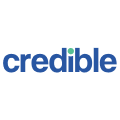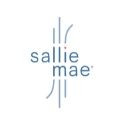Great Lakes Student Loans Services Review
All about Great Lakes student loans, and information about Great Lakes Loan Servicing.
Updated by Sharan Kumar on 1st September 2021
When you receive your first student loan bill, you might wonder why the sender isn’t the U.S. Department of Education, or the private loan provider you originally signed up with. That’s because loan servicers like Great Lakes manage the nitty-gritty details of student loans for providers like the U.S. government. The US Federal government works with 9 different loan servicers, including Great Lakes Educational Loan Services Inc.
Great Lakes Educational Loan Services Inc., or Great Lakes Student Loans, is one of the country’s leading student loan service providers. An affiliate of Nelnet Diversified Solutions, LLC, Great Lakes is a non-profit corporation and services around 10 million borrowers. While the company doesn’t directly provide loans to students, it works with 6,000 schools, the US Department of Education, and 1,000 lenders to service student loans.
Specifically, here are some of the services that Great Lakes loan servicers provides to its customers:
- Processing, tracking, and collecting monthly and extra payments
- Autopay
- Income-Driven repayment
- Processing forbearance and deferment requests
- Reporting account information to credit bureaus
- Supports borrowers in paying their debt and offers resources for loan forgiveness programs
We’ll go through more relevant information for the Great Lakes borrower, including repayment options for Great Lakes Org loans, and how to make the most of your Great Lakes student loans.
Table of Contents
- Great Lakes Student Loan Services Reviews
- How to File a Complaint with Great Lakes
- Great Lakes Repayment Plan Options
- Direct Loan Consolidation with Great Lakes
- Payment Methods Offered by Great Lakes
- Benefits to Military Servicemembers
- Contact Information
- Frequently Asked Questions (FAQs)
Great Lakes Student Loan Services Review
Great Lakes Student Loans service your student loans by monitoring your school enrollment, helping you figure out the best repayment plan, and processing your student loan payments.
Overall, borrowers have positive experiences with Great Lakes. According to the Consumer Financial Protection Bureau (CFPB), there were only 50 reported complaints against Great Lakes in 2020. Those 50 complaints made up only 1% of all complaints against loan servicers in 2020. Furthermore, Great Lakes has an A+ rating with the Better Business Bureau (BBB).
The US Department of Education assigns your loan servicer when providing your student loan. You can either choose to stay with the company and continue by making on-time payments, or choose to refinance with a private lender which would eventually become your new servicer.
Advantages of Great Lakes
Here are some of the pros of having Great Lakes service your student loans.
1. Extensive Knowledge Center
Great Lakes has an extensive knowledge center filled with resources and articles to help students and parents navigate student loans. It has information about a wide range of topics, like debt consolidation, loan forgiveness, member benefits, repayment options, consolidation, service member benefits, and more. They also have a few contact options if you need support, like live chat, email, mail, social media, and telephone.
2. Philanthropy
Not all loan servicers participate in the extensive philanthropy that Great Lakes participates in. Since 2006, Great Lakes has given over $200 million in grants to low-income students for research and tuition.
3. Mobile App
Great Lakes offers a mobile app for both iOS and Android to help students stay on top of their payments. The app sends reminders and confirmations, making the loan repayment process more intuitive.
4. Online Tools
The Great Lakes loan servicing platform is user-friendly and has several built-in tools and calculators. These tools help you understand your student debt and help you pick the best repayment plans that suit you.
5. Good Customer Service
Borrowers with Great Lakes student loans experience strong customer service, and quick responses to problems with solutions. They respond to inquiries via telephone, email, social media, live chat, and mail.
And, as mentioned previously, Great Lakes only received 50 complaints in 2020.
Disadvantages of Great Lakes
Here are some disadvantages of working with Great Lakes cited in some reviews from borrowers:
1. Errors in Payment Reporting
Recently Great Lakes faced a lawsuit for incorrectly reporting deferred loan payments to credit bureaus, during the forbearance period that began due to the COVID-19 pandemic. Due to this incorrect reporting, millions of Great Lakes student loans borrowers experienced dipped credit scores. Although Great Lakes is working to rectify the issue, it’s always important to review your payments and check your credit score every so often.
2. No Credit Card Option
Great Lakes doesn’t offer credit cards as a viable payment method to borrowers, which can be inconvenient for some.
3. Frequent Communications before Graduation
Some borrowers said that Great Lakes called or otherwise contacted them before loan payments were due. While it’s likely that the servicer just wanted to help the students plan, some students might be intimidated and prefer to keep communications to a minimum.
4. Auto Pay Complications
If you sign up for auto pay, you must manually opt-out if you’d like to cease withdrawals from your account. Some reviewers reported that Great Lakes continued to withdraw automatic payments even after the loan was paid off due to autopay still on. Some reviewers also noticed that Great Lakes turned off autopay without their knowledge, causing them to miss a payment
5. Failing To Process Income-Driven Repayment Plans
Some borrowers reported issues with Great Lakes’ income-driven repayment (IDR) plans. Unfortunately, Great Lakes delayed informing borrowers about certain repayment plans, which prevented them from saving money with the IDR plan. Other borrowers complained that the application process took too much time. As a borrower, you might have to frequently check in with Great Lakes to enroll in IDR.
How to File a Complaint with Great Lakes
If you wish to file a complaint against Great Lakes, your first step is to file the complaint on your Great Lakes student account. After that, you might consider filing a complaint through the following avenues:
- Great Lakes student account
- FAFSA online account
- Consumer Financial Protection Bureau (CFPB)
- Better Business Bureau (BBB)
How to Settle a Dispute with Great Lakes
If you already filed a complaint and you haven’t heard a satisfactory response or resolution, you can take this final last resort. You can share your report with their student loan ombudsman. The ombudsman is an unbiased and confidential body that helps students and servicers resolve issues. Here is the Great Lakes ombudsman contact information:
Contact Escalation
PO Box 7860
Madison, WI 53707
Phone: (866) 348-0708
Fax: (866) 451-1183
E-mail: greatlakesservicingombudsman@glhec.org
Great Lakes Repayment Plan Options
Great Lakes provides the following repayment options to federal student loan borrowers:
1. Income-Driven Repayment (IDR) Plan
The Income-Driven Repayment (IDR) Plan option is great for borrowers who don’t bring in enough income to cover their monthly expenses. IDR plans usually boast the lowest monthly payments. If you have Great Lakes student loans, you can access low IDR plans, as little as $0 per month. However, that $0 is only for the principal. 0$ payment plans take longer to pay off, and result in more interest paid over time.
IDR payments entail:
- Renewal each year
- Proof of income
- Varied eligibility requirements
Furthermore, there are 4 types of IDR plans to choose from:
- Repay As You Earn (REPAYE)
- Pay As You Earn (PAYE)
- Income-Based Repayment Plan
- Income-Contingent Repayment Plan
2. Standard/ Level Repayment Plan
This is the default payment plan for student loans. Generally, borrowers will pay the least amount of interest over time with this plan. With a standard repayment plan, you make fixed loan payments each month over the course of 10 years.
3. Graduated/Extended Repayment Plan
Extended level repayment plans allow you to pay your loans over the course of 25 years instead of 10 years. Extended graduated plans begin with lower, interest-only payment amounts in the beginning, with eventual increases after 2 years.
Direct Loan Consolidation with Great Lakes
If you have multiple federal loans with different terms and interest rates, managing payments could be difficult. You might consider debt consolidation, which entails combining your loans into one single monthly loan payment, to simplify your debt.
Most student loan servicers, including Great Lakes, offer student loan consolidation services. Great Lakes specifically offers the Direct Consolidation Loan Program.
Eligibility Criteria for Consolidation
To be eligible for consolidation you must meet the following criteria
- You should have at least one federal Loan
- You should have loans in grace, deferment, forbearance, delinquent, or repayment status
- Cannot consolidate loans while still in school
- You can consolidate your defaulted loans but you have to enroll your new consolidation loan on an income-driven repayment plan
Keep the following in mind when considering consolidation:
- You have to pay a different interest rate
- You have to pay for a longer period
- Your Direct Parent PLUS Loans are not eligible for consolidation under PAYE or IBR plan
- You might lose out on some federal student loan benefits.
If the loans you wish to consolidate are in a grace period, make sure to mention it on your application ASAP. Otherwise, it will be processed immediately, making you lose your remaining grace period.
Payment Methods Offered by Great Lakes
The following are some of the ways through which you can make payments for your loans-
- Auto Pay - Signing up for Auto Pay allows the lender to automatically deduct your payments directly from your savings or checking account on the due date. This is a great way to avoid late payments.
- Pay Online - You can easily make monthly payments to your Great Lakes student loans online anytime, anywhere. This option also allows you to keep track of your payment history, and save your bank details to make payments conveniently.
- Mobile App - You can download the Great Lakes mobile app on your Android or iPhone, and use it to make payments or check your loan details. This application also notifies you about your due dates and successful payments you’ve made.
- Pay by Phone- You can call Great Lakes on their automated telephone system to make payments by phone. You can also choose to speak to their trained representatives during business hours for support on how to make payments or answer any questions that you might have.
- Pay by Mail - You can pay by check and mail it to Great Lakes. Make sure you send along your payment insert from your billing statement, and also mention your Payment Reference Number on your check.
If you have trouble making payments during a certain period, you can request a change in your payment due date.
Benefits to Military Servicemembers
As a token of appreciation, Great Lakes provides several benefits to servicemembers, or people who have served in the army:
1. Interest Rate Reductions
Servicemembers on active military duty can qualify for either or both of the following interest rate reductions:
Servicemembers Civil Relief Act (SCRA) - Members qualifying for this act will have their interest rate charged up to a maximum of 6%. Servicemembers will also benefit from dropped late fees under the SCRA.
To qualify, you must meet the following requirements:
(a) Your loans must have been disbursed before the date your active duty started.
(b) You must show proof of your duty via the US Department of Defense database, or by submitting a copy of your orders.
Zero Percent Interest for Hostile Areas - Servicemembers with military duty in hostile areas can qualify for zero percent interest for up to 60 months.
To qualify, you must meet the following requirements:
(a) Your loan must be a Federal Direct loan, disbursed on or after October 1, 2008.
(b) You must provide documented proof that you are deployed in a hostile area like your certified official’s statement and signature, military orders which show that you are serving in a hostile area, or a leave and earnings statement which shows that you are getting hostile pay.
2. Reduced Payments
Servicemembers can enroll in an Income-Driven Repayment (IDR) plan to lower federal loan payments, with special consideration under the Heroes Act Waiver.
Heroes Act Waiver: This act has provisions that allow qualifying servicemembers to extend their income-driven repayment plan. Servicemembers can renew their IDR plan for up to 90 days after the IDR plan end date, or after one year.
To qualify, you must meet the following requirements:
- You are on active duty during war, other military operation, or national emergency.
- You are carrying out qualifying National Guard duty during a war, other military operation, or national emergency.
- You are living in or employed in a place stated as a disaster area by any federal, state, or local official regarding a national emergency.
- You have gone through direct economic hardship because of war or other military operation or national emergency.
3. Temporarily Postponed Payments
While serving in the military, you can choose to postpone your payments through the following options:
Military Service Deferment
The military service deferment allows you to temporarily postpone your payments while you're on active duty.
Post Active Duty Student Deferment
This deferment option is for servicemembers called to duty while they’re in school. Eligible servicemembers can stop making payments for up to 13 months after the end of service.
National Guard Duty Mandatory Forbearance
Ths forbearance option is specific to certain members of the National Guard.
Department of Defense Loan Repayment Program Mandatory Forbearance: Some service members are eligible for partial repayment of student loans under the Department of Defense Loan Repayment program. To qualify for this, see the details below:
- Consult with your commanding officer for varying agency requirements.
- You can apply for this forbearance and temporarily postpone payments if you are still waiting for a military student loan payment to go through.
4. Loan Forgiveness
Servicemembers can qualify for either one of the following loan forgiveness programs.
Public Service Loan Forgiveness
To be eligible for this program, you must meet the following requirements:
(a) Only Federal Direct Loans are eligible
(b) You are working full-time in a qualifying public service organization
(c) You must make 120 on-time qualifying payments
(d) You are enrolled in a qualifying repayment plan
Total and Permanent Disability Discharge
To be eligible for this program, you must meet the following requirements:
(a) Have documented proof from the US Department of Veteran Affairs that you’re unemployed due to a service-related disability.
(b) Only Federal loans are eligible.
Contact Information
Great Lakes Student Loan Services has a few contact methods, listed below:
Phone number - (800) 236-4300
Email - Company email contact page
Twitter - twitter.com/MyGreatLakes
Facebook - www.facebook.com/mygreatlakes
Fax - Toll Free: (800) 375-5288
Local/International: (608) 246-1608
Official Website - mygreatlakes.org
Frequently Asked Questions
1. Will I have late fees added to my past due loans?
- To avoid late fees, you must change your account from “past due” to current. To do this, you have to first log into the Great Lakes website and make a payment, or find out more information on requesting a deferment or forbearance to bring your account to current.
2. Will past due payments negatively affect my credit rating?
- Yes, past due payments (also known as delinquency) can negatively affect your credit rating. A loan servicer can report a past-due payment to a credit bureau at any time.
3. How does Great Lakes support students struggling to make their loan payments?
- Great Lakes has a robust customer service department that you can contact with any concerns regarding repayment. They also have forbearance and deferment options for eligible borrowers that can help lower payment amounts and extend term lengths.
4. Can I switch my loan servicer?
- Yes, you can switch your loan servicer provider either when you consolidate your loans or apply for student loan forgiveness.
5. After my deferment or forbearance period is over, will I have a past due amount?
- No, you will not have a past due amount when your deferment or forbearance ends. A deferment or forbearance acts like a reset button for past due amounts, and brings your loan current. But it should be noted that you will still have the principal balance you had prior to entering into forbearance or deferment.
6. What is a 1099-C?
- The 1099-C Cancellation of Debt is an IRS tax form that lists the amount of debt that was canceled on your student loans. The IRS treats debt cancellation as income, and Great Lakes is required to report student loan debt cancellation to the IRS. If applicable, you'll receive a 1099-C from Great Lakes with the amount of debt canceled on your Great Lakes-serviced loans. You'll report the amount listed on your 1099-C statement on your federal tax return.
| Minumum Credit Score | Apply in as little as | Variable APR | Fixed APR | ||
|---|---|---|---|---|---|
 | Not Available | 15 minutes or less | 2.95 | 4.74 | View disclosures |
 | 620 | 2 minutes | 5.38%-16.99%1 | 4.43%-16.99%1 | View disclosures |
 | Not Available | 15 minutes | 1.13% - 11.23%¹ (with autopay) | 3.50% - 12.60%¹ (with autopay) | View disclosures |



93.jpg)


28.jpg)
